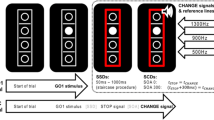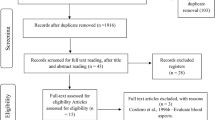Summary
OBJECTIVES: The objective of the study was to investigate long-term cognitive effects resulting from low to moderate lead exposure below current threshold values. Executive functions, attention, visuospatial and visuomotor functioning in workers formerly exposed to lead were investigated. METHODS: 48 men formerly exposed to lead and with a mean current blood level (PbB) of 5.4 μg Pb/100 ml were investigated, together with 48 matched controls (PbB, 4.7 μg Pb/100 ml) out of a pool of 61 males. The two groups were matched for age, years spent in education, verbal intelligence and gram alcohol consumption per week. The following neuropsychological tests were used: modified Wisconsin card sorting test, block design test, visual recognition test, simple reaction time, choice reaction and digit–symbol substitution. Lead exposure was assessed using both current and cumulative measurements. RESULTS: There were no significant differences in cognitive parameters between the two groups. When analyzing dose–response relationships, negative correlations were found between PbB and performance in the block design test, and between PbB and scores in the visual recognition and digit–symbol substitution tests. High cumulative exposure (IBL, >5000; duration of exposure, >5 years) correlated only with wrong reactions in the choice reaction test. CONCLUSIONS: The results of our study indicate that cognitive deficits resulting from low-level exposure to lead are reversible. The study was limited to low-level long-term exposure (all PbB values were always below 55 μg Pb/100 ml), and extrapolation of these results to persons heavily exposed to lead is not possible.
Zusammenfassung
ZIEL: Das Ziel der gegenwärtigen Studie war es, kognitive Langzeitfolgen von Bleiexposition innerhalb gültiger Grenzwerte nach Expositionsende zu untersuchen. Deshalb wurden exekutive Funktionen, Aufmerksamkeit, visuelles räumliches Denken, einfache und komplexe Reaktionszeit in früher exponierten Bleiarbeitern untersucht. METHODIK: Die Studiengruppe umfasste 48 männliche Arbeiter, die früher berufsbedingt bleiexponiert waren, mit einem mittleren aktuellen Blutblei von 5,4 μg/100 ml, sowie 48 gematchte Kontrollen (PbB, 4,7 μg/100 ml), welche aus einem Pool von 61 männlichen Stahlarbeitern gebildet wurden. Die Kontroll- und Studiengruppe wurden hinsichtlich Alter, Bildungsjahre, verbaler Intelligenz und der Einnahme alkoholischer Getränke parallelisiert. Folgende neuropsychologische Tests wurden durchgeführt: Modified Wisconsin Card Sorting Test, Block Design Test, visuelles räumliches Denken, einfache Reaktionszeit, komplexe Reaktion und der Zahl-Symbol-Substitutionstest. Die Bleibelastung wurde anhand von aktuellen und kumulativen Parametern beurteilt. RESULTATE: Bei allen neurobiologischen Parametern zeigten sich keine signifikanten Unterschiede zwischen den Gruppen. Negative Korrelationen wurden zwischen aktuellen Blutblei und Block Design Test, visuell-räumlichen Denkens und Zahl-Symbol-Substitutionstest gefunden. Hohe kumulative Exposition (IBL, >5000; Dauer der Exposition länger als 5 Jahre) korrelierte nur mit falschen Reaktionen beim komplexen Reaktionstest. SCHLUSSFOLGERUNGEN: Die Ergebnisse unserer Studie weisen darauf hin, dass kognitive Defizite von niedriger Bleiexposition reversibel sind. Unsere Ergebnisse sind auf langjährige niedrige Bleiexposition limitiert (alle aktuellen Blutblei-Werte waren immer unter 55 μg/100 ml). Eine Extrapolation der Ergebnisse auf höher exponierte Arbeiter ist daher nicht möglich.
Similar content being viewed by others
Author information
Authors and Affiliations
Corresponding author
Rights and permissions
About this article
Cite this article
Winker, R., Barth, A., Ponocny-Seliger, E. et al. No cognitive deficits in men formerly exposed to lead. Wien Klin Wochenschr 117, 755–760 (2005). https://doi.org/10.1007/s00508-005-0466-0
Received:
Accepted:
Published:
Issue Date:
DOI: https://doi.org/10.1007/s00508-005-0466-0




